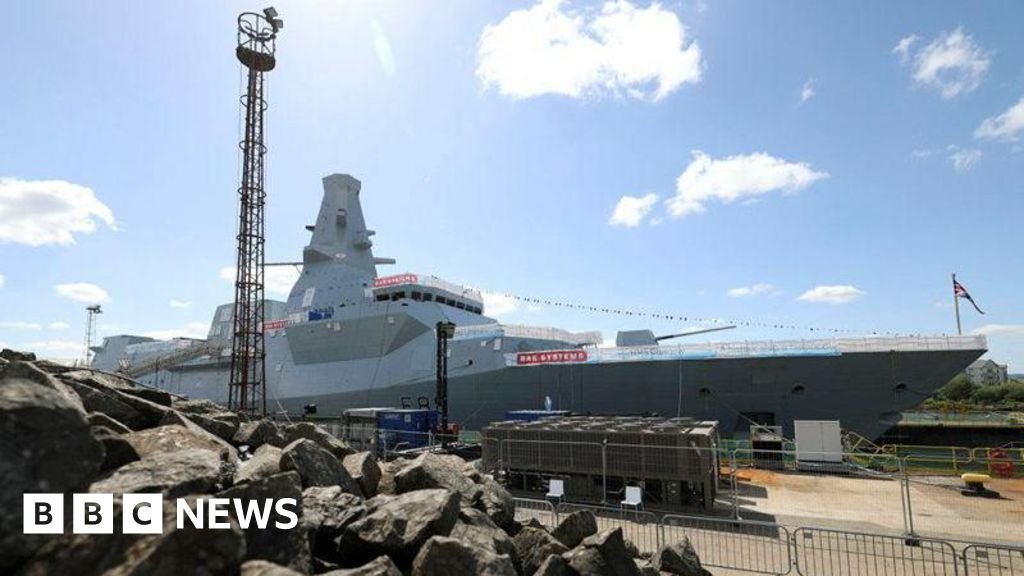Business
How AI servers are transforming Taiwan’s electronics manufacturing giants

The revenue charts tell a story that would have seemed impossible just three years ago: AI servers are now generating more money than iPhones for Taiwan’s manufacturing giants. For the first time in decades, Taiwan’s manufacturing titans are watching their bread-and-butter consumer electronics businesses get overtaken by artificial intelligence infrastructure – a shift that’s rewriting the playbook for an industry that was built on assembling the world’s smartphones and laptops.
What took Apple nearly two decades to build, AI servers have displaced in less than three years, signalling an inflexion point that companies like Foxconn are navigating actively, diversifying beyond traditional consumer electronics.
The scale of Taiwan’s server dominance
Taiwan’s commanding position in global server manufacturing has positioned it perfectly for the AI boom, with the island accounting for over 90% of global AI server builds and approximately 80% of all server shipments worldwide. Its dominance stems from decades of expertise in electronics manufacturing, originally developed through the notebook computer industry, since evolved into an important advantage in the age of artificial intelligence.
According to statistics released by Taiwan’s Ministry of Economic Affairs in October 2024, the island’s server production value from January to July 2024 reached NT$426.7 billion (approximately US$13.2 billion) in value, in seven months surpassing the total value for 2023 and representing an annual growth rate of 153.9%.
Major players experience revenue surges
The impact of AI servers on Taiwan’s manufacturing giants has been nothing short of transformational. Nvidia partner Wistron’s revenue for January to July rose 92.7%, while Quanta’s grew 65.6% in the same period. The numbers reflect a broader trend affecting the entire ecosystem of Taiwan’s original design manufacturers (ODMs).
Foxconn, the world’s largest contract manufacturer, has experienced perhaps the most dramatic shift. Consumer electronics accounted for 35% of Foxconn’s total revenue in the second quarter of this year, while the cloud and networking business represented 41%. In 2021, consumer electronics represented 54% of its revenue. Now is the first time AI servers and cloud infrastructure have overtaken the company’s traditional smartphone manufacturing business.
Quanta Computer’s AI server focus
Quanta Computer, which supplies AI servers powered by Nvidia chips, said that AI servers are on track to account for 70% of its total server revenue this year, thanks to improved yield rates and a better learning curve for Nvidia’s GB300 chip-based servers. AI servers accounted for more than 60% of its total server revenue in the first half of this year.
Quanta is the world’s second-largest server assembly contractor, taking approximately 17% of the market. Its primary focus is AI server projects from the four major CSPs (Microsoft, Amazon, Google, and Meta). The company has secured orders for Nvidia’s latest GB200 servers and has been expanding production capacity to meet increased demand.
Wistron’s strategic positioning
Wistron has currently secured orders for Nvidia’s HGX Level 6 and DGX Level 10 servers, and obtained orders for the new generation AMD MI300 series AI server boards. Nvidia this week booked an entire Wistron server plant in Taiwan to build AI servers, highlighting the intensity of demand and the strategic importance of securing manufacturing capacity.
Quanta Computer plans to increase production capacity for AI servers in the US, and its factories there are booked up to the end of 2025. The capacity constraint reflects the “insane demand” that characterised the AI server market throughout 2024 and into 2025.
Market share and financial impact
The financial transformation in the sector has been remarkable. Quanta Computer reported that AI servers are on track to account for 70% of its total server revenue this year, with AI servers already accounting for more than 60% of its total server revenue in the first half of 2025, according to chief financial officer Elton Yang.
Wistron has demonstrated the transformative impact of AI servers on manufacturing economics, with the company’s revenue for January to July 2025 rising 92.7% compared to the same period in the previous year. The dramatic growth reflects the premium nature of AI server manufacturing compared to traditional consumer electronics.
The impact extends to Taiwan’s broader server ecosystem, with companies securing multi-year production contracts that extend well into 2026, indicating sustained demand and revenue visibility that was rarely seen in the consumer electronics era.
Strategic implications and future outlook
“The monthly sales jump for Taiwan ODMs in the first half of 2025 is evidence of this trend,” Robert Cheng, head of Asia technology hardware research at BofA Global Research, told Reuters, referring to original design manufacturers like Foxconn that contract manufacture products for their clients.
The situation reflects a repositioning of Taiwan in the global technology supply chain. Where companies once competed primarily on cost and manufacturing efficiency for consumer electronics, AI servers require higher levels of technical sophistication, closer collaboration with chip designers, and more stringent quality control.
“We think this shift toward AI servers, whatever form it takes, is good for Taiwan’s tech industry,” Cheng said, noting Taiwanese firms’ ability to shift rapidly to cater to the changing needs of their customers.
However, challenges lie ahead. Taiwan’s current 90% share of the global AI server market may soon decline as manufacturers expand production elsewhere. Companies are already establishing manufacturing facilities in the US, Mexico, and other locations to serve local markets and comply with supply chain requirements.
Industry-wide transformation
The AI server boom has catalysed changes that extend beyond individual companies to reshape Taiwan’s entire electronics manufacturing ecosystem. Traditional boundaries between different types of technology products are blurring as manufacturers develop new capabilities and forge closer partnerships with AI chip companies.
The transformation also highlights Taiwan’s unique position in the global technology supply chain. The combination of advanced manufacturing capabilities, established relationships with major technology companies, and proximity to key semiconductor facilities has created a competitive advantage that continues to drive growth.
As artificial intelligence applications continue to need more sophisticated computing infrastructure, Taiwan’s manufacturers appear well-positioned to capitalise on demand. The challenge will be maintaining the country’s technology leadership while adapting to changing geopolitical and market conditions that may require more distributed global operations.
The shift from consumer electronics to AI servers exemplifies Taiwan’s ability to reinvent itself in response to technological change, maintain its central role in the global technology ecosystem, adapt and innovate.
See also: Huawei unveils high-end AI chip for servers alongside MindSpore framework
Want to learn more about AI and big data from industry leaders? Check out AI & Big Data Expo taking place in Amsterdam, California, and London. The comprehensive event is co-located with other leading events including Intelligent Automation Conference, BlockX, Digital Transformation Week, and Cyber Security & Cloud Expo.
Explore other upcoming enterprise technology events and webinars powered by TechForge here.
Business
Start Your AI Agency Launches 90-Day Global AI Training Program to Build Lucrative AI Service Businesses
Start Your AI Agency, under the leadership of CEO Greg Squibbs, has announced the 90-Day global AI training program that enables individuals to build lucrative, location-independent businesses by using artificial intelligence.
Dubai, United Arab Emirates–(Newsfile Corp. – August 31, 2025) – Start Your AI Agency has launched a 90-Day global AI training program to build lucrative AI service businesses. The company’s core offering is a free training program that introduces the proprietary AI Layering Strategy – a system inspired by proven practices from leading global tech innovators. This model allows entrepreneurs to streamline their outreach, automate service delivery, and operate businesses 24/7 from anywhere in the world without the need for complex software or large teams.
CEO Greg Squibbs
To view an enhanced version of this graphic, please visit:
https://images.newsfilecorp.com/files/8703/262414_87e4e1ac64487862_001full.jpg
For digital entrepreneurs looking to launch and scale AI-powered service businesses, Start Your AI Agency 90-Day training program focuses on actionable steps and replicable systems that are accessible to them with no prior experience in AI or coding. By simplifying advanced AI technologies and integrating them into everyday business operations, the program helps to bridge the gap between innovation and execution.
The program supports a wide range of professionals, including freelancers, consultants, and business owners, who are seeking to modernize their services using AI.
Greg Squibbs, a long-time advocate for technological innovation, emphasizes the importance of AI education for long-term success. As he has stated, “Artificial intelligence, automation, team building – if you don’t understand it – learn it. Because otherwise, you’re going to be a dinosaur within three years.”
Furthermore, Start Your AI Agency’s program helps individuals seeking to transition from traditional employment, entrepreneurs aiming to scale digital operations, and professionals interested in integrating automation into their service-based businesses.
About Start Your AI Agency:
Start Your AI Agency is a global training platform dedicated to helping individuals build and scale AI-powered service businesses. Founded with the vision to democratize access to artificial intelligence, the company provides step-by-step training, tools, and automation systems that enable entrepreneurs to launch high-profit, location-independent agencies. With a focus on simplicity, scalability, and real-world application, Start Your AI Agency has become a trusted launchpad for thousands of digital entrepreneurs worldwide. Under the leadership of CEO Greg Squibbs, the company continues to drive innovation and empower the next generation of AI-focused business owners.
For more information, visit at https://www.startyouraiagency.com.
Media Contact:
To view the source version of this press release, please visit https://www.newsfilecorp.com/release/262414
Business
Norway signs £10bn deal for anti-submarine warships built in UK | BAE Systems

Norway has agreed a £10bn deal for anti-submarine warships that will be built in the UK, as the two countries plan joint operations in northern Europe to deal with increased Russian activity.
The Ministry of Defence (MoD) said the agreement to build Type 26 frigates was the UK’s biggest ever warship export deal by value, and Norway’s biggest defence procurement deal.
It said that overall it would provide a £10bn boost to the UK economy and support 4,000 jobs across the UK “well into the 2030s”.
The Type 26 frigates will be built at the BAE Systems shipyards in the Govan area of Glasgow, which employ 2,000 staff and are already constructing eight of the warships for the Royal Navy.
“This £10bn deal is what our plan for change is about,” said the UK prime minister, Keir Starmer. “Creating jobs, driving growth and protecting national security for working people. The export of our world-leading Type 26 frigates will do exactly that, supporting well-paid jobs up and down the United Kingdom, from apprentices to engineers.”
It is estimated that the shipbuilding programme will support 432 businesses, including 103 in Scotland, 47 in the north-west of England and 35 in the West Midlands.
The deal also signals a strengthening of a long-term strategic relationship with Norway, as part of which a combined fleet of 13 frigates will operate jointly in northern Europe.
Eight of the frigates will be British and “at least” five will be Norwegian, with the joint operation designed to “significantly strengthen Nato’s northern flank”.
“This historic defence deal deepens our strategic partnership,” said John Healey, the defence secretary. “With Norway, we will train, operate, deter and – if necessary – fight together. Our navies will work as one, leading the way in Nato, with this deal putting more world-class warships in the north Atlantic to hunt Russian submarines, protect our critical infrastructure and keep both our nations secure.”
Concerns over critical infrastructure around Europe have been raised on multiple occasions in the last year, after the alleged sabotage of the Baltic gas pipeline and undersea internet cables between Finland and Estonia.
Norway was the only other country to participate in the UK carrier strike group’s full deployment this year, and it also collaborates with the UK and Nato partners to safeguard critical undersea infrastructure in northern Europe.
“Norway and the United Kingdom are close allies with common interests and strong bilateral ties,” said Jonas Gahr Støre, Norway’s prime minister. “I am confident that the strategic partnership with the UK for purchasing, developing and operating frigates is the right decision.”
The Scottish secretary, Ian Murray, said the decision showed the “tremendous success” of Scotland’s shipbuilding industry and was an example of another “defence dividend” for the country.
The Type 26 frigate features sophisticated weapons, and advanced sensors and communications. Its design enables the warship to be upgraded to “counter emerging threats”, according to the MoD’s statement announcing the deal.
Charles Woodburn, the chief executive of BAE Systems, said: “The Norwegian government’s decision reflects its confidence in British industry’s ability to deliver a superior anti-submarine warfare platform, together with systems and equipment, that will support its future maritime security and reinforce its position within Nato.”
Business
UK agrees £10bn deal to supply Norway with warships

The UK and Norway have agreed a £10bn deal under which Britain will supply the Norwegian navy with at least five new warships.
The agreement involving Type 26 frigates will be the UK’s “biggest ever warship export deal by value”, the Ministry of Defence (MoD) said, while Norway said it would be its largest “defence capability investment” to date.
The government said the deal would support 4,000 UK jobs “well into the 2030s”, including more than 2,000 at BAE Systems’ Glasgow shipyards where the frigates will be built.
UK Prime Minister Sir Keir Starmer said the agreement would “drive growth and protect national security for working people”.
“This success is testament to the thousands of people across the country who are not just delivering this next generation capabilities for our Armed Forces but also national security for the UK, our Norwegian partners and Nato for years to come,” he added.
The deal is also expected to support more than 400 British businesses, including 103 in Scotland, the MoD said.
The agreement represents a victory for the British government and defence industry over France, Germany and the United States – which were also being considered by Norway as possible vendors.
It will create a combined UK-Norwegian fleet of 13 anti-submarine frigates – eight British and five Norwegian vessels – to operate jointly in northern Europe, significantly strengthening Nato’s northern flank.
The warships will be constructed at the BAE systems yard in the Govan area of Glasgow, where frigates for the Royal Navy are currently being built.
Scottish Secretary Ian Murray said the choice of the UK “demonstrates the tremendous success of our shipbuilding industry and showcases the world-class skills and expertise of our workforce on the Clyde”.
Norway’s Prime Minister Jonas Gahr Støre, who informed Sir Keir of the decision to select the UK in a phone call on Saturday night, said the partnership “represents a historic strengthening of the defence cooperation between our two countries”.
Støre said the government had weighed two questions in its decision: “Who is our most strategic partner? And who has delivered the best frigates?… The answer to both is the United Kingdom.”
The Type 26 frigates purchased by the Royal Norwegian Navy will be as similar as possible to those used by their British counterparts, and have the same technical specifications.
They are specifically designed to detect and track enemy submarines and engage them in combat if necessary, with deliveries are expected to begin in 2030.
UK Defence Secretary John Healey said: “For over 75 years, Britain and Norway have stood together on Nato’s northern and north-eastern frontiers, keeping the UK and Europe safe. This historic defence deal deepens our strategic partnership.
“With Norway, we will train, operate, deter, and – if necessary – fight together.
“Our navies will work as one, leading the way in Nato, with this deal putting more world-class warships in the North Atlantic to hunt Russian submarines, protect our critical infrastructure, and keep both our nations secure.”
-
Tools & Platforms3 weeks ago
Building Trust in Military AI Starts with Opening the Black Box – War on the Rocks
-

 Business2 days ago
Business2 days agoThe Guardian view on Trump and the Fed: independence is no substitute for accountability | Editorial
-

 Ethics & Policy1 month ago
Ethics & Policy1 month agoSDAIA Supports Saudi Arabia’s Leadership in Shaping Global AI Ethics, Policy, and Research – وكالة الأنباء السعودية
-

 Events & Conferences3 months ago
Events & Conferences3 months agoJourney to 1000 models: Scaling Instagram’s recommendation system
-

 Jobs & Careers2 months ago
Jobs & Careers2 months agoMumbai-based Perplexity Alternative Has 60k+ Users Without Funding
-

 Funding & Business2 months ago
Funding & Business2 months agoKayak and Expedia race to build AI travel agents that turn social posts into itineraries
-

 Education2 months ago
Education2 months agoVEX Robotics launches AI-powered classroom robotics system
-

 Podcasts & Talks2 months ago
Podcasts & Talks2 months agoHappy 4th of July! 🎆 Made with Veo 3 in Gemini
-

 Podcasts & Talks2 months ago
Podcasts & Talks2 months agoOpenAI 🤝 @teamganassi
-

 Mergers & Acquisitions2 months ago
Mergers & Acquisitions2 months agoDonald Trump suggests US government review subsidies to Elon Musk’s companies




















